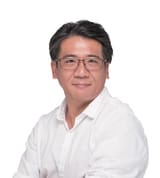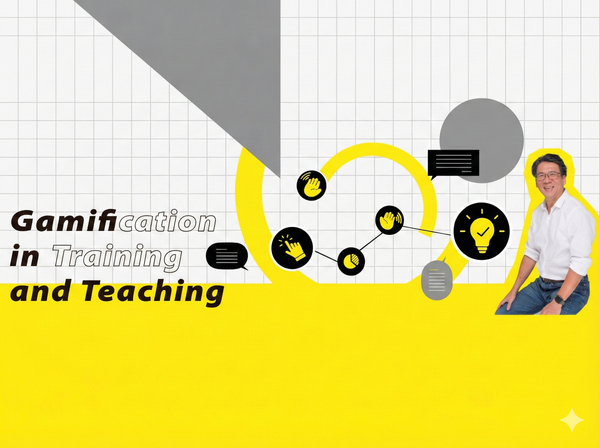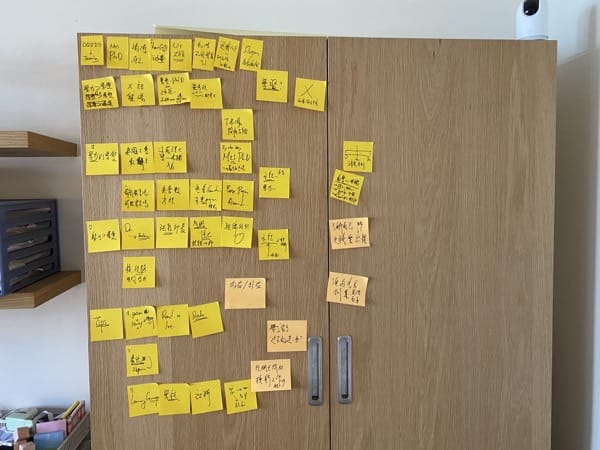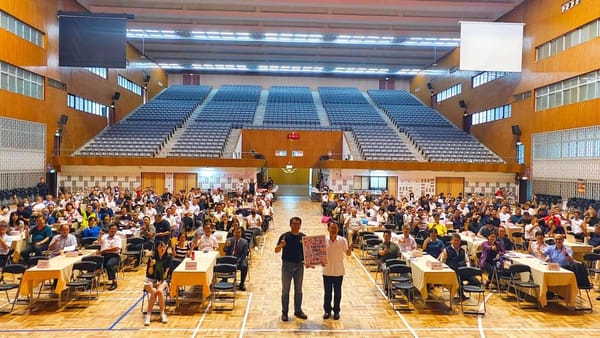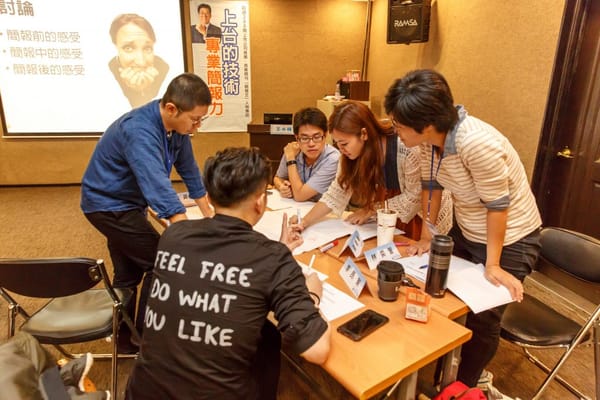What I Gained from Six Months at Indiana University with My Family
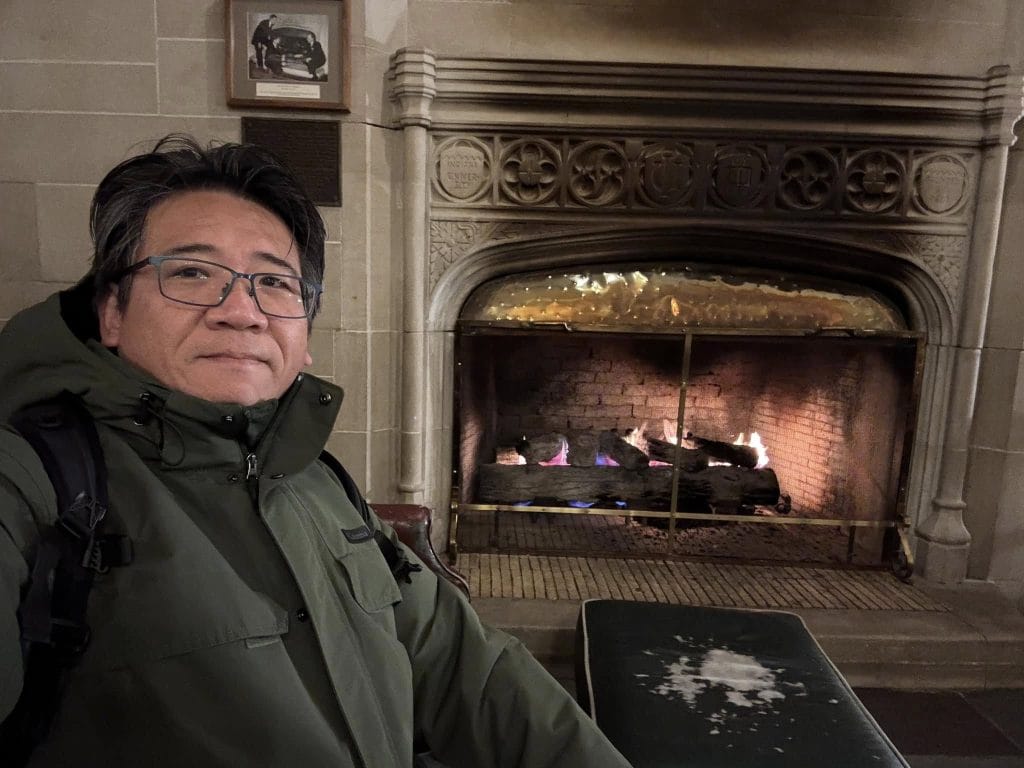
Taking a six-month sabbatical in America with my entire family in my fifties has created a treasury of unforgettable memories for each of us.
Memories, however, are fragile. Once we return to Taiwan and immerse ourselves in our daily routines, experiences, and challenges, these memories gradually fade or transform. They become less vivid, their edges softening with time.
That's why, on our flight back to Taiwan, I'm capturing what impressed me most during this half-year journey (precisely 187 days, as documented in my daily notes). This reflection serves both as a future reminder for myself and as shared insights for others.
1. The World is Vast – Worth Exploring Every Corner
Living in Taiwan, we intellectually understand the world's vastness, especially in this digital age where we can instantly connect with different parts of the globe. Yet "knowing" the world is vast and "experiencing" its vastness are fundamentally different.
Only by venturing out can we truly expand our horizons. Our time at Indiana University (IU) Bloomington revealed countless "I never realized" moments: the striking distinctness of four seasons, children confidently diving into 13-foot-deep pools, pickup trucks serving as everyday transportation, the breathtaking beauty of university grounds, state-of-the-art sports facilities as standard amenities, the true feeling of a 10-hour drive, Halloween's festive spirit, and how pristine snow brings not just beauty... but the necessity of shoveling before leaving home. While these might seem like common knowledge, experiencing them firsthand transforms abstract understanding into lived reality.
2. IU's Wonderful Work Environment
During our half-year stay at Indiana University, I truly appreciated the many excellent spaces that allowed me focused work time daily, enabling me to complete projects like "Presentation Skills," "Dr. Jeff's Letters," and other significant work. My most frequent spot was the Quiet Study Room below our residence, overlooking a vast lawn that transformed into a beautiful snow scene in winter. This is where I typically wrote my newsletters and contemplated new book content.
The Computer Room downstairs was another favorite workspace. It offered BYOD (Bring Your Own Desktop) facilities – connecting my MacBook Pro via USB-C gave me access to a large external display, which, combined with my portable monitor, created a three-screen setup. During the first 2-3 months after arrival, I completed most of the editing and feedback for my "Presentation Skills" online course here. Similarly, another view of the lawn/snow scene through the window helped maintain my focus and productivity. I was usually alone there, occasionally meeting familiar faces, including K from Iran and friends from Lebanon.
I also worked at various locations including the IMU, Main Library, Information Building, and School of Education Library. Each place offered different views, all beautiful and peaceful... well, except perhaps the library (due to student discussions).
3. English Environment and IEP Learning
Even in America, you need to actively create opportunities for English practice. If you stay in your apartment all day, you might not need to converse much or create any English learning environment. Sure, basic daily conversations happen, but these are typically brief, task-oriented exchanges that don't lead to meaningful English expression or learning (in my opinion).
I'm grateful to my wife for enrolling me in the IEP (Intensive English Program) – 7 weeks, 5 days per week, 4 hours daily, totaling about 140 hours of pure English learning. From writing (my weakest point) to reading, listening, communication, and grammar (quite challenging), plus my daily 20-30 minute walks to and from class chatting with ChatGPT. While I can't quantify my improvement, I definitely advanced beyond my previous level. At least now I can understand about 80% of English YouTube content! As for conversation, I was never afraid – as long as I could convey my meaning and communicate effectively, that was enough!
Back home, I'll continue practicing speaking with AI and using Duolingo to maintain my language skills.
4. Experience with International Collaborative Work
While I was already accustomed to remote work, this time the challenge wasn't distance but time zones! With a 12-hour difference in summer (13 hours in winter), I often found myself starting new work communications with Taiwan right after completing a full day's work here. I typically woke up before 6 AM (6 PM Taiwan time), working while maintaining contact with Taiwan (morning in the US, evening in Taiwan). Then by evening here (around 8 PM), I needed to coordinate with the Taiwan team or schedule meetings (10:30 PM US time/10:30 AM Taiwan time).
The most memorable period was during the 13-hour winter time difference, coinciding with promotional activities requiring Podcast appearances and my IEP intensive English course (8 AM-12 PM, equivalent to 9 PM-1 AM Taiwan time). Since many Podcasts were evening live broadcasts in Taiwan, I had to wake up at 5:30 AM to prepare for 7 AM broadcasts (8 PM Taiwan time). Sometimes I'd excuse myself mid-class to use the teacher's office for live Podcast recordings (9-10 AM, 10-11 PM Taiwan time), or record Podcasts in the library at 10 PM after a full day. Our weekly Tuesday evening (Taiwan morning) meetings with our F Academy company team were particularly memorable. During marketing season, busy meetings sometimes lasted until 11:30 PM (11:30 AM Taiwan time).
This half-globe collaborative work, transitioning from US daytime to Taiwan daytime, left a deep impression. Initially, it felt like there was no rest time (continuous relay), but eventually, I found my rhythm.
5. Indiana's Distinct Seasons
We arrived in summer, enjoying water activities at the lake with Jesse & Gwen's family and visiting the diving pool in Bloomington. As autumn arrived, we witnessed the stunning display of orange-yellow leaves – the most beautiful season here. Soon the leaves fell (even tree bark falls!), the landscape grew sparse, and winter brought the heaviest snow in recent years. While beautiful and exciting for us, the deepening snow did cause some transportation inconvenience, and we even helped our American host mom with snow removal in her yard. The temperature range from summer's 90+ degrees to winter's -4 degrees Fahrenheit, and the extreme indoor-outdoor temperature difference – short sleeves inside, snow jackets outside – gave us a true taste of Midwest American weather and lifestyle.
6. Friends Make All the Difference Abroad
We're deeply grateful for the care shown by our international friends. From our encounters with Jesse & Gwen's family at their lakeside cabin and during Christmas; American mom Judy's thoughtful care and carefully prepared Christmas gifts, along with help in various aspects of daily life; IEP teacher Maddie's special Halloween invitation and numerous other assistances; old friend I-Feng's provision of household items, lights, scooter (sadly later stolen), and crucial information including initial housing application details. There were many others who helped us along the way, including IU junior colleagues we shared experiences and meals with, our children's school teachers and principal, and even Tammy who helped with the children's vaccinations. Not to forget JJ's advisor Jesse, whose support made this visiting scholar opportunity possible.
At Christmas, Kazuko came specially from Japan, joining I-Shin, Sean, and us at Jesse & Gwen's home. Along with Dale & Jane, Jesse's children, Gwen's mother and sister, we had a grand reunion in Fort Wayne after 20 years – a rare and precious life connection.
And of course, our work partners, collaborative teams, and good friends in Taiwan. Friends truly make all the difference abroad. We're grateful for these wonderful friends who created so many beautiful memories during our six-month stay. We're truly thankful and will never forget everyone's kindness.
7. Taking a Course at IU & Learning from Prof. Bonk
Different times bring new perspectives on effective teaching. Even after writing "Techniques of Teaching," "Techniques of Teaching Online Course," creating online courses, and publishing papers about teaching, I still sought ways to improve: What methods and techniques could be enhanced further?
Thanks to Prof. Bonk's invitation, I was able to audit the complete R546 – Instructional Strategies course. This validated many of my teaching strategy ideas, including collaborative learning, interactive discussions, and motivation enhancement, proving that effective teaching methods are universal across countries. Before the course ended, I had the opportunity to deliver a 20-minute presentation in English about gamification in teaching, sharing Taiwan's progress in this field with classmates from around the world – a wonderful opportunity and challenge for me.
From Prof. Bonk, I learned much about integrating online and physical courses, incredibly detailed course outlines and learning progress arrangements (the most thorough, comprehensive syllabus I've ever seen), meticulous pre-class preparation, and – super enthusiastic teaching attitude! Even approaching 70 (or already 70? XD), his dedication, energy, and thoroughness match top corporate trainers! This impressed me deeply and set a standard I'll strive for – to maintain such passion and full engagement in every class, regardless of age, just like Professor Bonk.
An additional realization: my teaching methods and understanding of education actually stand up quite well internationally!
8. Children's International Exposure and Language Immersion
Our half-year journey began with a clear purpose: immersing our children in an international and linguistic environment. Thanks to their years of bilingual elementary education in Taiwan, they adapted swiftly and embraced their new school environment. After six months, they consider their American elementary school experience among their most treasured memories – a testament to the success of our journey and surely a joy for their mother! (All credit goes to JJ for orchestrating their educational arrangements.)
I've watched Amber's English pronunciation naturally shift toward native patterns through peer interaction, while Audrey has developed more precise and fluid English expression. Though they had substantial English exposure in Taiwan, this total immersion experience proved transformative. Their teachers' feedback highlighted not just successful adaptation but exceptional performance in several subjects. The minimal homework load, classroom autonomy, and replacing mandatory naps with outdoor play time particularly delighted them.
Beyond language acquisition, living abroad has expanded their worldview – perhaps our most valuable achievement. Hearing Amber speak of studying abroad in the future confirmed that we'd planted seeds of global awareness and adventure in our children's minds.
Conclusion
Do you harbor dreams of living abroad? It's undeniably challenging. Consider my situation: compressing work during F Academy's peak period, then relocating to America immediately after launching our "Presentation Skills" online course, managing remote work across time zones. Ask yourself: Could you step away at such a pivotal moment? Would you balance everything for your dream, making necessary sacrifices to achieve it?
These six months abroad required many sacrifices to achieve meaningful gains. Yet every sacrifice has proven worthwhile. Through my half-year experience and these reflections, I encourage you to pursue your dreams boldly and create lasting memories for yourself and your family. The world awaits your exploration!
